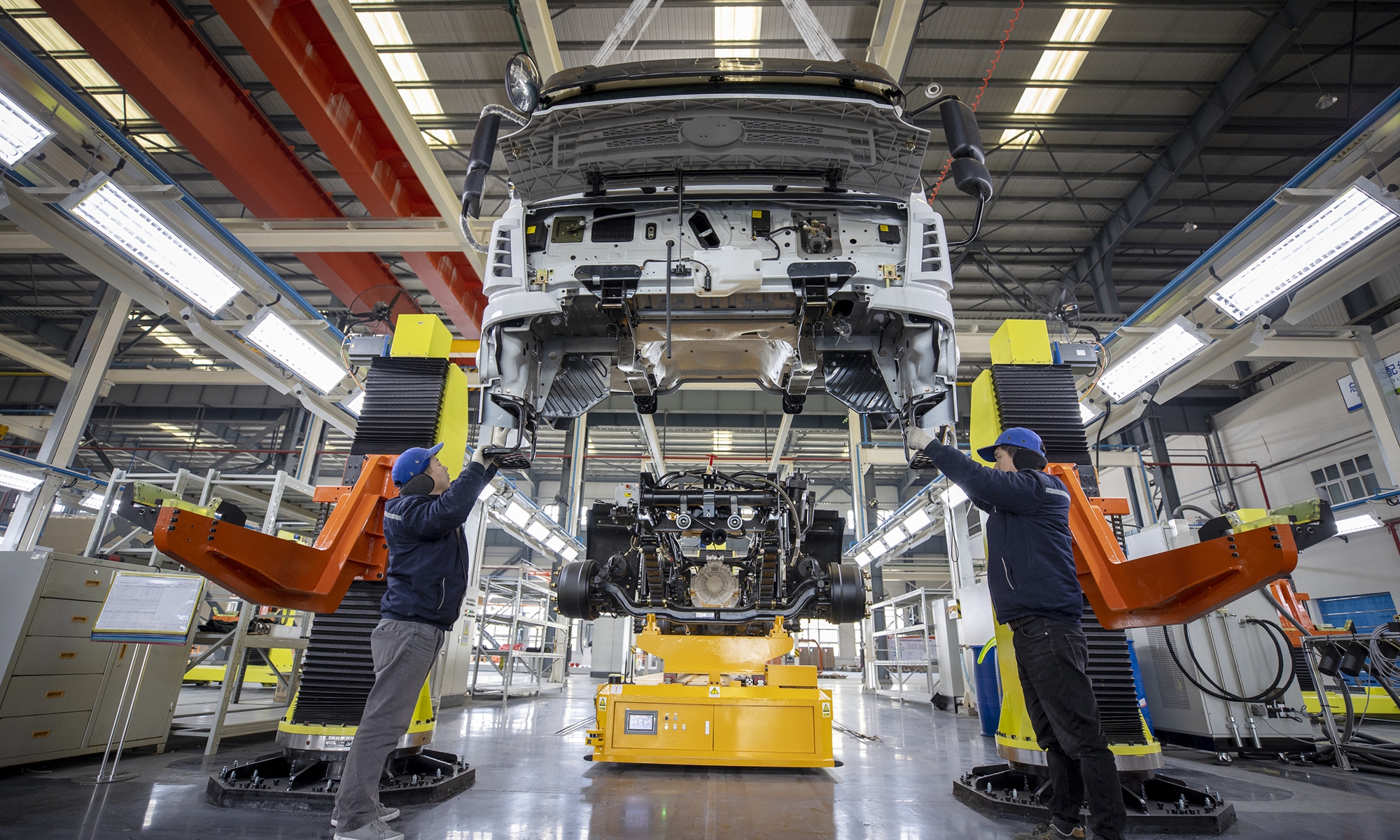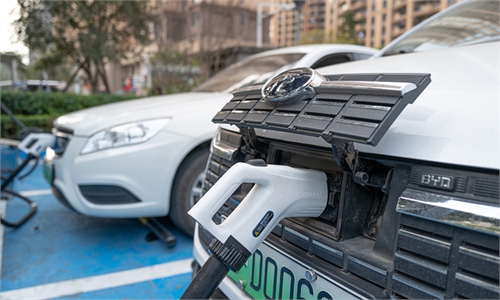China’s big companies from different fields jump to NEV bandwagon
Nation’s big companies from different fields jump to NEV bandwagon

Employees of a commercial new-energy vehicle (NEV) company in Yancheng, East China's Jiangsu Province, rush to complete orders on Tuesday. Yancheng is one of the Chinese cities with enterprises that can make different types of NEVs, and since the beginning of 2021, there? been an influx of orders. Photo: IC
Attracted by the huge market potential of the new-energy vehicles (NEV), a good number of Chinese companies from diverse sectors - including online search company Baidu, telecom company ZTE and home appliance maker Hisense - have rushed into the new field.
The trend will likely promote the NEV sector's move toward making smarter cars, as the newcomers have advantages in technologies including 5G, autonomous driving and the Internet of Things (IoT). But as NEVs get smarter, people should be cautious about cybersecurity issues, industrial insiders said.
ZTE, a premium telecom vendor like Huawei Technologies, confirmed to the Global Times on Wednesday that it will establish a team for developing electronic products for cars as part of its systemic product technology planning department.
Shandong Province-based Hisense told the Global Times that it has finished a merger and acquisition deal with Japan-based SANDEN, which makes compressors for air conditioners. Its latest products are mostly used in NEVs.
The new interest from such diverse companies mainly stems from the high growth potential of NEVs, which is also reflected in the share prices of many NEV automakers as Tesla - the most valuable auto company in the world, Zhang Xiang, an auto expert with the Talent Exchange Center under the Ministry of Industry and Information Technology, told the Global Times.
"ZTE has mature technologies for 5G and data centers, while Hisense has made great achievements in the IoT field. These are their advantages in jumping to the heated NEV sector," Zhang said.
Intelligence is likely to be a main direction for NEV makers as only about 15 percent of all NEVs are smart cars, according to Zhang.
However, since security loopholes on smart vehicles could paralyze the entire smart system and endanger personal safety, Zhou Hongyi, a member of the National Committee of the Chinese People's Political Consultative Conference (CPPCC) and founder and the chairman of internet security company 360, proposed that smart vehicles should undergo mandatory tests for security resistance before being put on the market.
In the proposal that was obtained by the Global Times on Wednesday, Zhou suggested developing tools that simulate real cyberattacks and applying them into smart vehicles' development and maintenance, and eventually making security tests mandatory.
"The safety systems of intelligent vehicles should be incorporated into production, sales and service systems, and gradually be required just like seat belts" Zhou said.
Zhou also stressed the importance of collecting and monitoring data generated in using smart cars.


